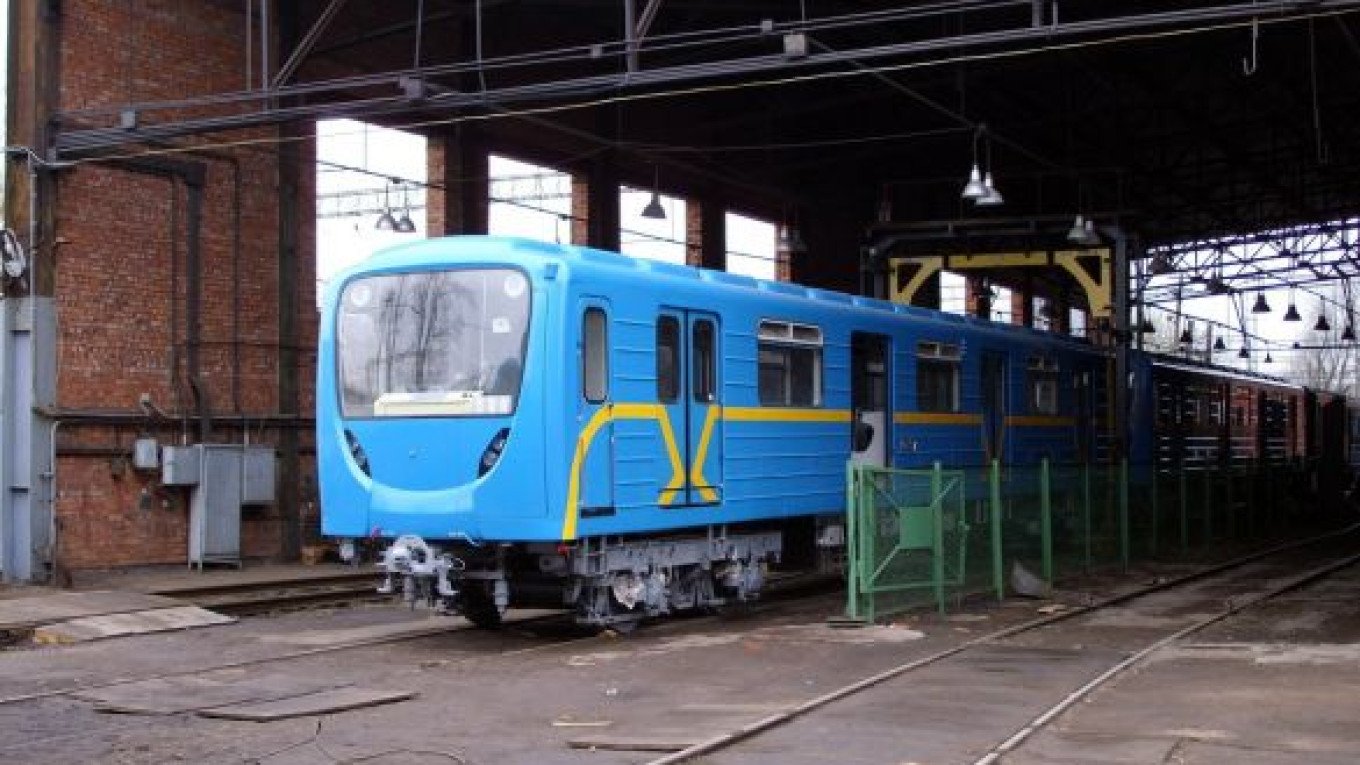Amid a rising number of strikes nationwide, workers at metro-railcar producer Vagonmash appealed to the St. Petersburg human rights ombudsman to demand back wages of millions of rubles.
The St. Petersburg-based company, which produces railcars for the Moscow, St. Petersburg and foreign metro systems, owes the 592 workers more than 35 million rubles ($1.2 million) in back wages, the local prosecutor's office and the ombudsman's office said following a probe into Vagonmash.
The probe was initiated soon after an employee's appeal to Alexander Shishlov, St. Petersburg's human rights ombudsman. The employee said? the company had not paid her in several months, Valentin Arteyev, a spokesman for the ombudsman's office, said Thursday.
According to the Criminal Code, if wages are delayed for more than two months, employees can start court proceedings against their company. But they must prove that corruption is involved, which is difficult.
Under the Administrative Code, the company is obligated to pay a fine for every day of wage delays.
Arteyev said Vagonmash's former and current employees had initiated court cases against the company over unpaid wages.
The situation with unpaid salaries has arisen alongside a legal dispute over the bankruptcy of the company. In December, Vagonmash came under attack from Governor Georgy Poltavchenko, who threatened to cancel a contract to buy metro cars from the company because it had not delivered orders on time.
The company has also experienced a wave of management reshuffles, replacing three CEOs over a three year period. Vagonmash, owned by Dedal Machinery Group, is currently led by Yulia Bychkova, a former head of the company's legal department.
A Vagonmash representative did not respond to a written request for comments Thursday.
The Federal State Statistics Service said that in December, unpaid wages in Russia amounted to 2.35 billion rubles, up 2.5 percent from November.
Of the total unpaid wages, 46 percent are in the manufacturing industry,? since it is one of those most affected by the unstable economic situation in Europe.
"Most cases are connected with a lack of money at companies," said Sergei Saurin, a lawyer at the Center for Social and Labor Rights, a think tank that studies labor issues.
Anna Ochkina, a deputy director of the Institute for Globalization and Social Movements, said Thursday said the situation is different from that of the 1990s, when salaries at state-owned companies often went unpaid, leading to large-scale anti-government strikes.
"Today, it is not critical on a national scale, though it is concentrated in the industries where it could lead to social tensions," Ochkina said.
Recent findings by the statistics agency show that the number of strikes rose sharply at the beginning of 2013. Six strikes were held in January, compared with just two in the whole of 2012.
Contact the author at a.bratersky@imedia.ru
Related articles:
A Message from The Moscow Times:
Dear readers,
We are facing unprecedented challenges. Russia's Prosecutor General's Office has designated The Moscow Times as an "undesirable" organization, criminalizing our work and putting our staff at risk of prosecution. This follows our earlier unjust labeling as a "foreign agent."
These actions are direct attempts to silence independent journalism in Russia. The authorities claim our work "discredits the decisions of the Russian leadership." We see things differently: we strive to provide accurate, unbiased reporting on Russia.
We, the journalists of The Moscow Times, refuse to be silenced. But to continue our work, we need your help.
Your support, no matter how small, makes a world of difference. If you can, please support us monthly starting from just $2. It's quick to set up, and every contribution makes a significant impact.
By supporting The Moscow Times, you're defending open, independent journalism in the face of repression. Thank you for standing with us.
Remind me later.


